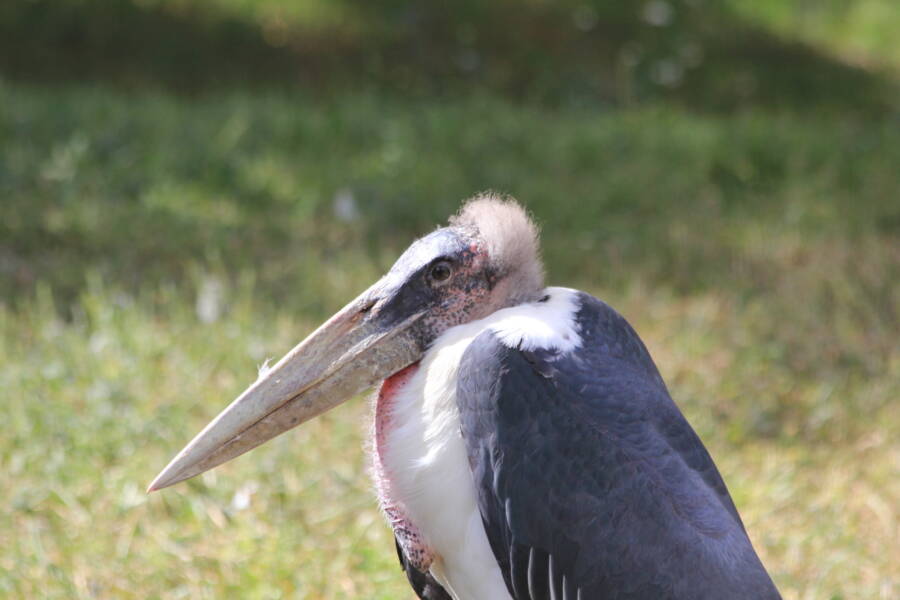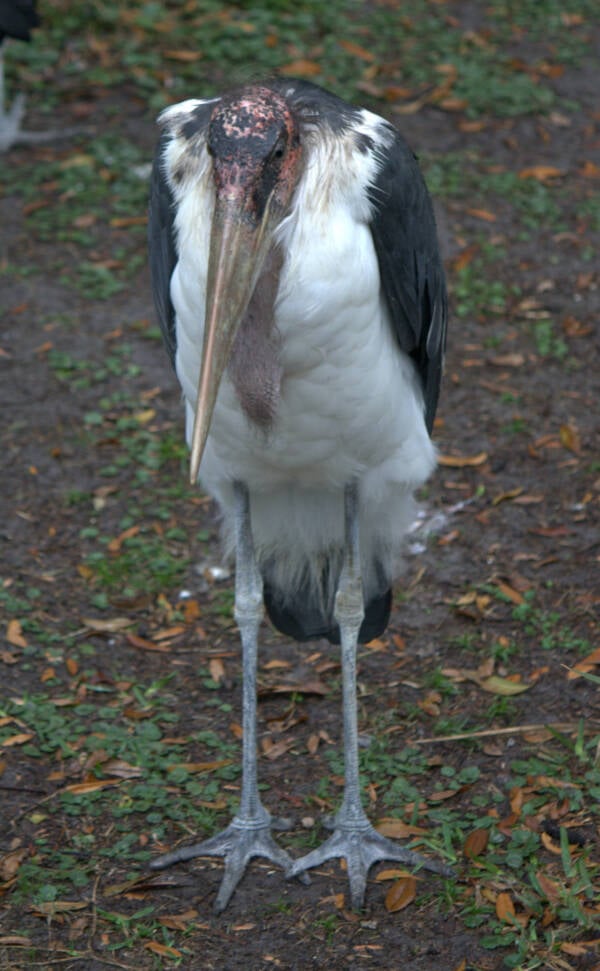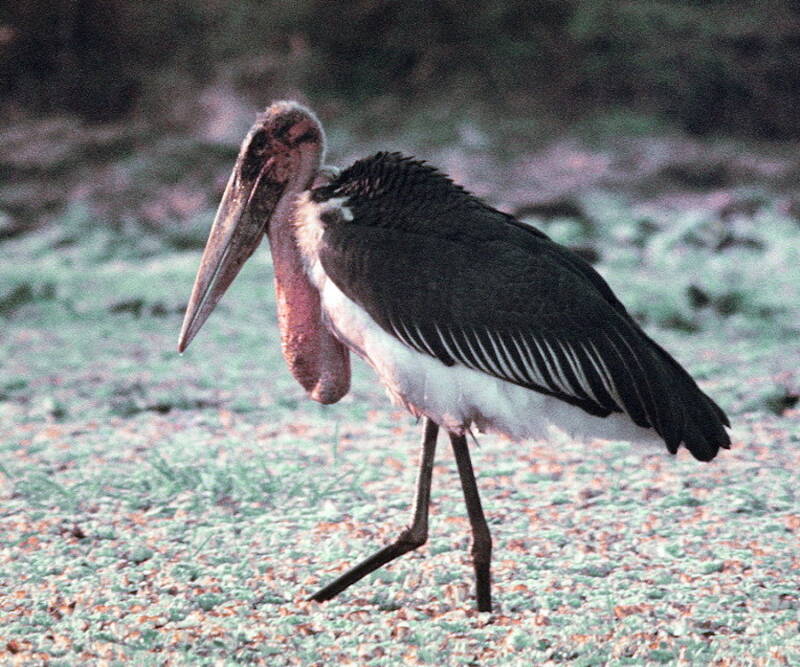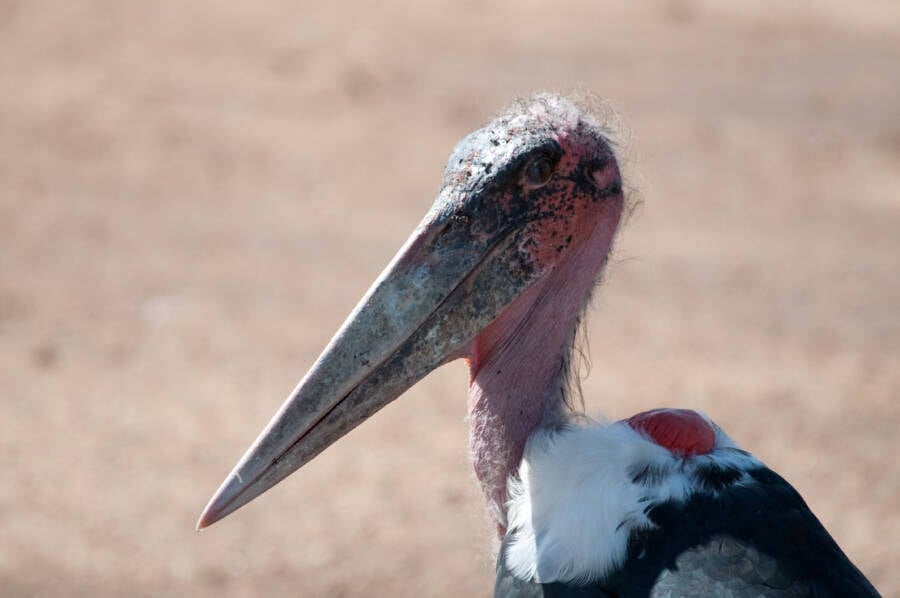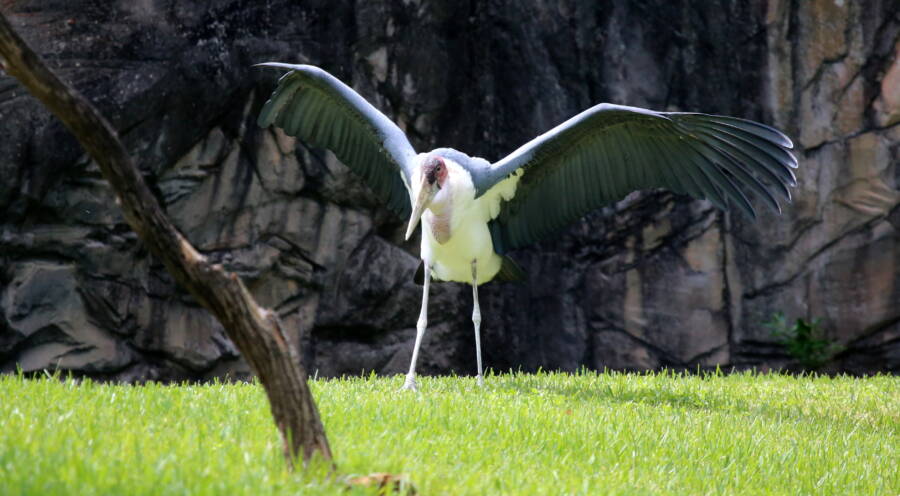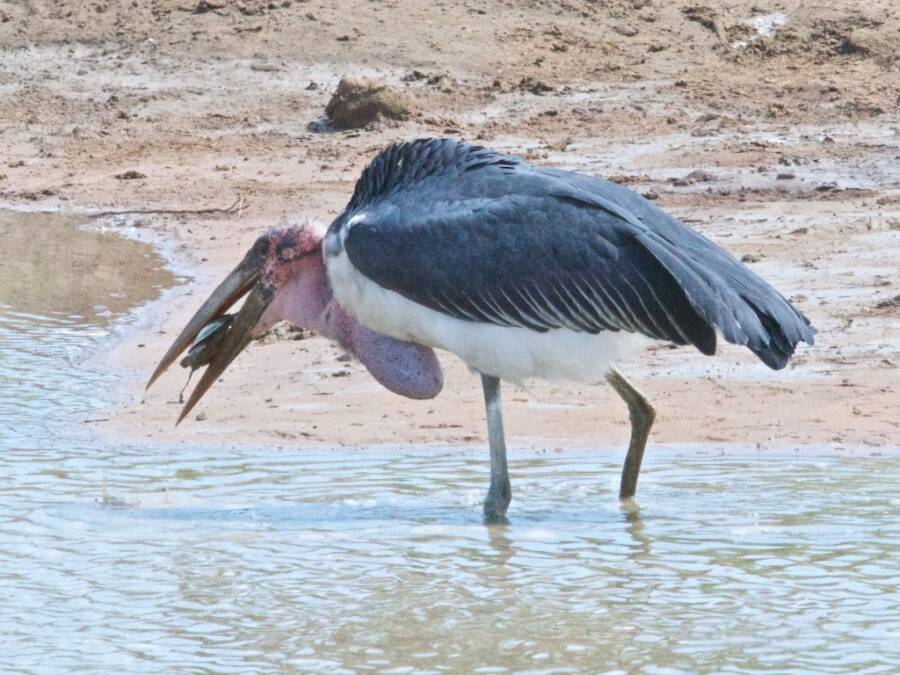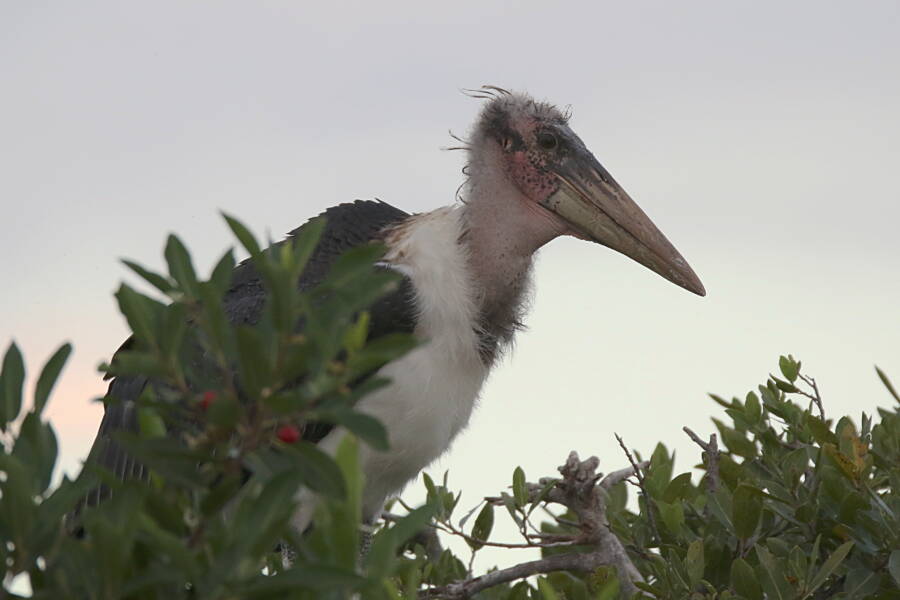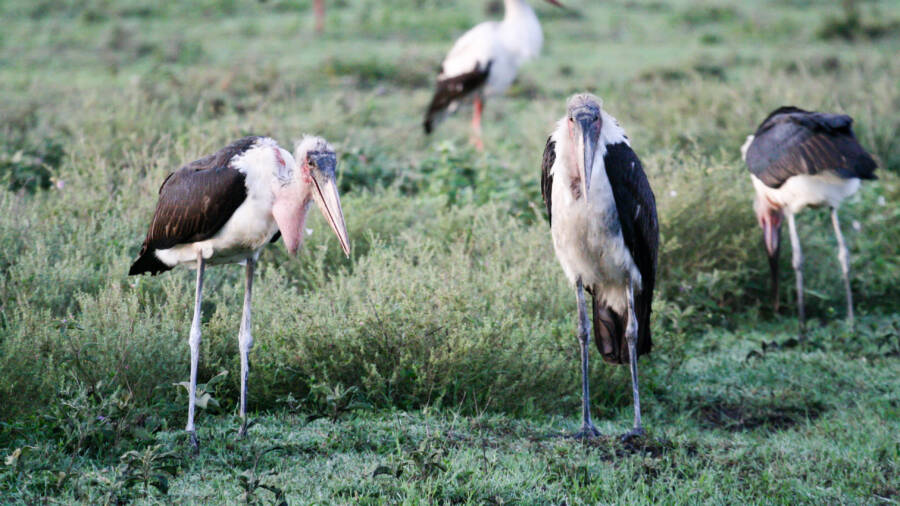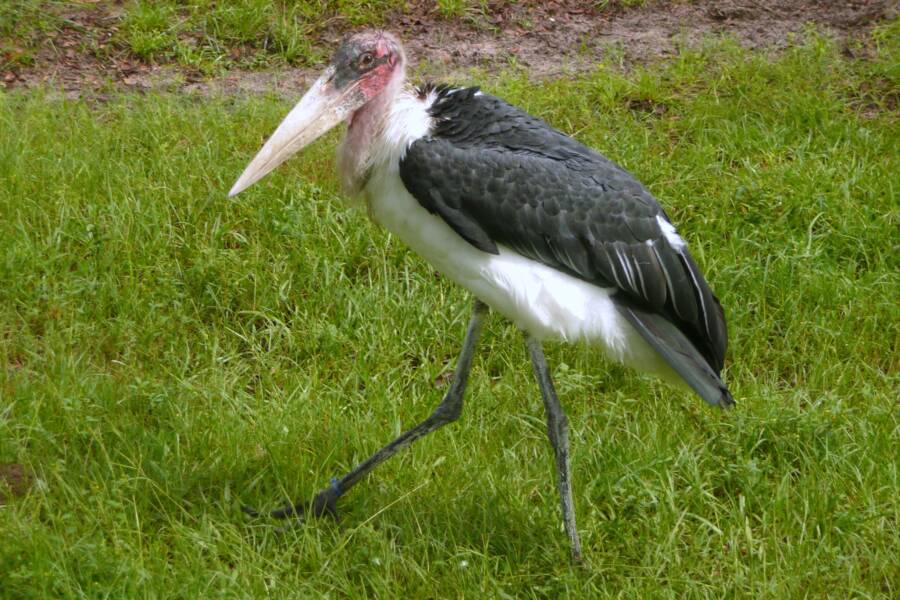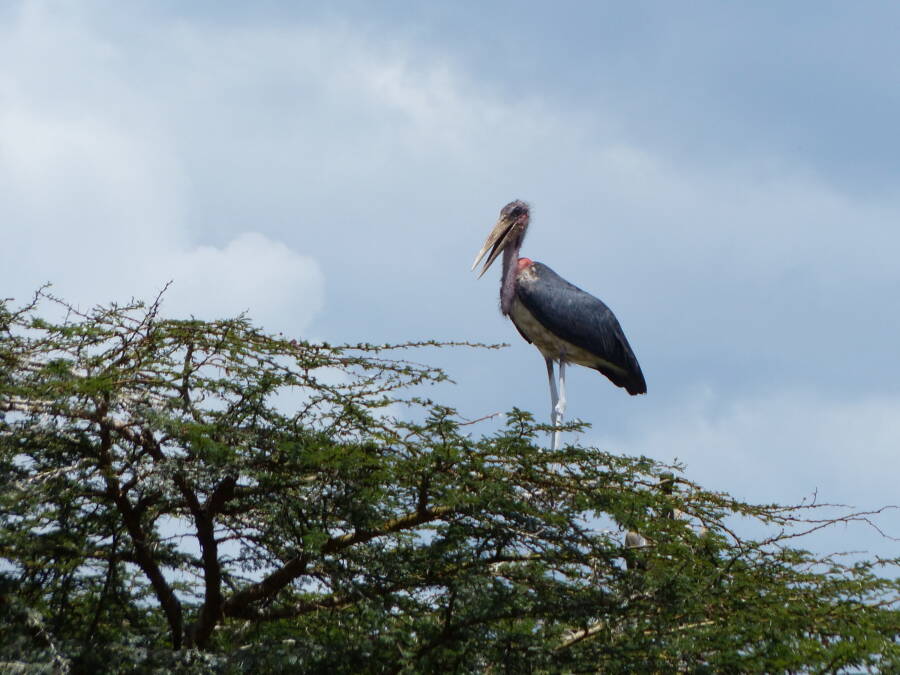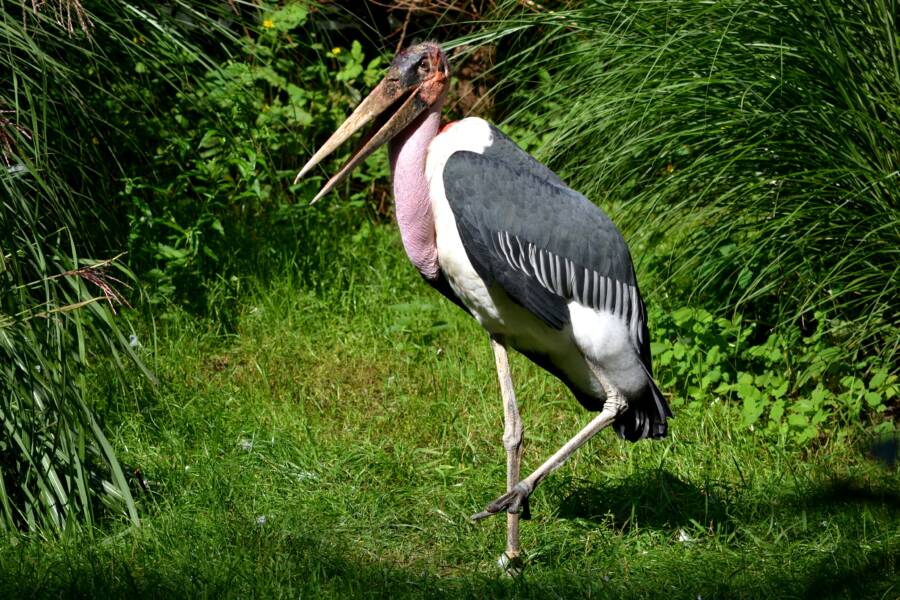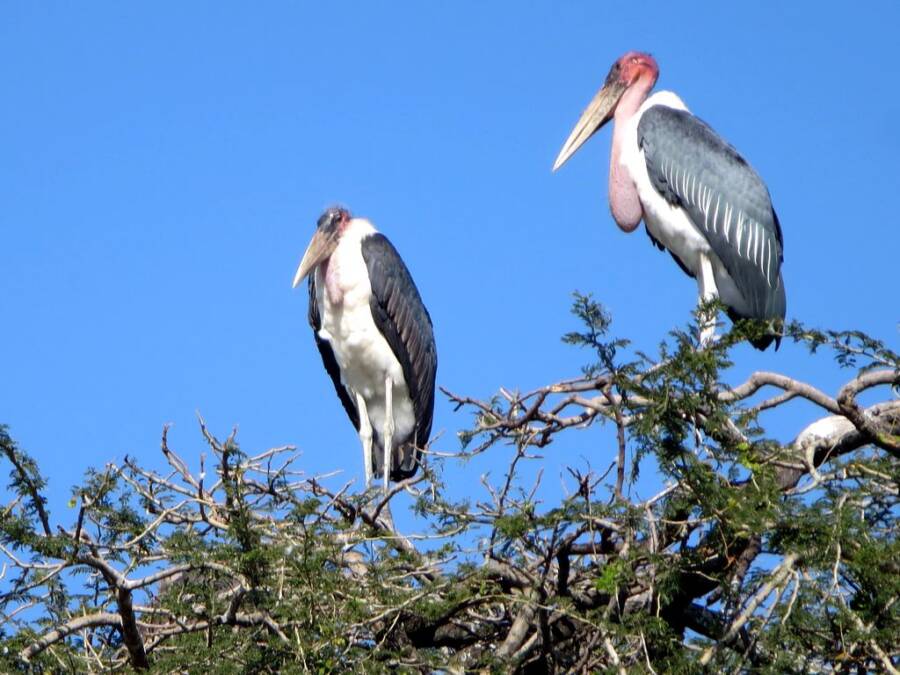The Marabou Stork, Aka The Undertaker Bird
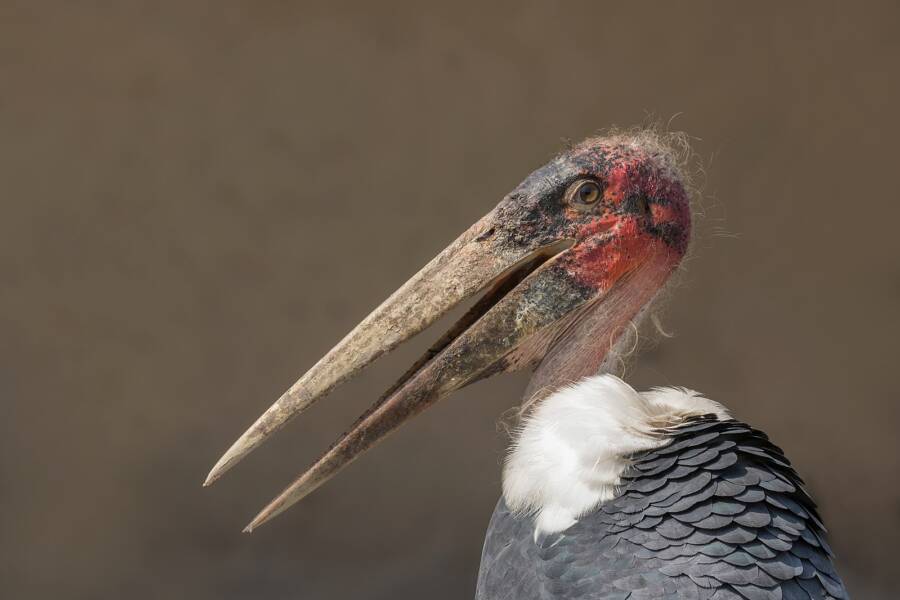
Wikimedia CommonsThe Marabou stork is often called the “undertaker bird” because of its cloak-like wings and mass of white hair.
Marabou storks, or Leptoptilos crumeniferus, are particularly scary-looking birds because of their skulking walk and bizarre silhouette. But they acquired their eerie traits for evolutionary reasons. Both their leg and toe bones are entirely hollow — allowing these large birds to take flight.
The African marabou has a wingspan of up 8 and a half feet and stands nearly 5 feet tall. Bald-headed scavengers, marabou feast on the carcasses of large mammals. More commonly, they snack on termites, birds as sizable as flamingos — and even dead elephants.
When all else fails, these resourceful creatures have been known to pick through human refuse.
The males are easily distinguishable by their large air sacs, which females lack entirely. The latter are also substantially shorter, while both are heavyset storks with enormous conical bills. Similarly, either sex is decorated in bare gray, black, and white colors with red-spotted heads and long black legs.
Marabous grow their full plumage by the time they are 4 years old. While they don't have any feathers on their neck or head, they do have white, soft tail feathers, coincidentally called marabou. Perhaps most glaring is the long reddish pouch dangling from their necks.
This 18-inch-long inflatable pink sac is entirely used for mating rituals, as it connects to the left nostril and serves as an amplifier for the bird's guttural croaks. Besides breeding season, marabous will only utilize that feature if threatened — and are generally rather quiet creatures.
As colonial breeders, marabou stork nests are comprised of large flat platforms made of sticks that protect a shallow central cup lined with leaves. Typically, they lay two to three eggs during the dry season, with both sexes taking turns for incubation. Their eggs hatch within 30 days.
While marabou can appear loving and gentle, they certainly protect their spot on the food chain with utter indifference. Attracted to grass fires, these birds will march toward them and snatch any fleeing animals up to feed upon.
Despite their bizarre appearance, watching these storks take flight is indeed a majestic sight.
